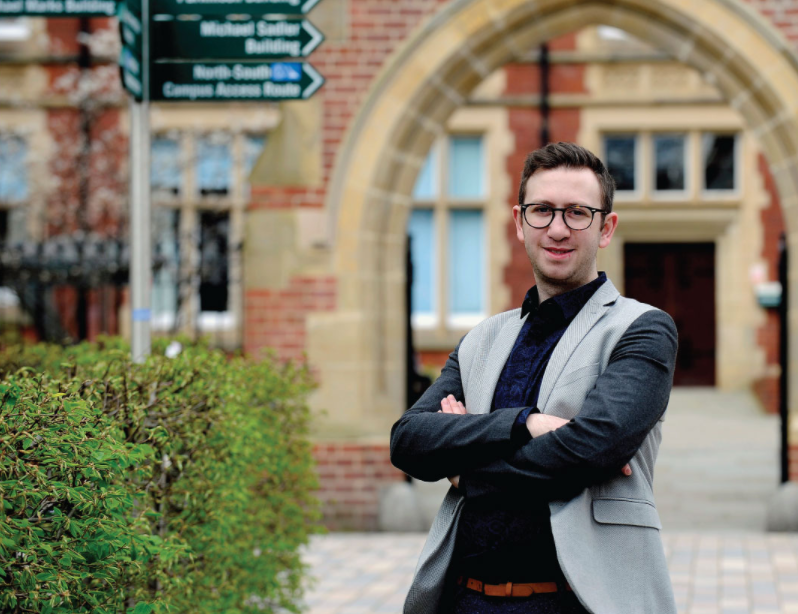Simon Stones @SimonRStones
Twitter chat on Wednesday 19 July 2017 between 8 pm and 9 pm (UK time) ‘Health 2.0: social media in healthcare’ will focus on using social media to engage and involve people and organisations in your work and research. Everyone is welcome to participate in the Twitter chat, regardless of profession or experience. The Twitte
 r chat will be hosted by Simon Stones (@SimonRStones), a patient research ambassador and PhD student at the University of Leeds who is working on long-term condition self-management by children and their families.
r chat will be hosted by Simon Stones (@SimonRStones), a patient research ambassador and PhD student at the University of Leeds who is working on long-term condition self-management by children and their families.
To participate in the Twitter chat, you will need a registered Twitter account. If you do not have an account, you can create one easily at www.twitter.com. Once you have an account, it is easy to get started. You can follow the discussion on Twitter by searching for #ebnjc – this is the EBN Twitter chat hashtag and by searching for this in Twitter, you’ll only see the relevant tweets related to the Twitter chat. Include #ebnjc in every tweet you send, to ensure that everyone participating in the Twitter chat can see your tweet. But remember, each tweet islimited to 140 characters of text, so make your tweets informative and concise!Like it or not, social media is here, and it is here to stay.
While the very mention of the phrase ‘social media’ fills some people with dread, it’s really not that bad – especially once you become familiar and confident about using it. Essentially, social media is an interactive communication platform that enables conversations amongst individuals. Merriam-Webster describe social media as “forms of electronic communication (as websites for social networking and microblogging) through which users create online communities to share information, ideas, personal messages, and other content (as videos).”[1]
The presence and use of social media has grown exponentially in the last decade, revolutionising the way in which we communicate with each other. Most importantly, it removes geographical barriers by enabling people to talk directly with each other – wherever and whenever they wish. Nowadays, the phrase social media is often used interchangeably to describe popular social networking sites such as Facebook, Twitter, LinkedIn, Instagram and Snapchat.
With a generation of millennials who are more likely to seek initial medical advice from the internet rather than a doctor or nurse, it is indisputable that the professional community must get to grips with social media, in order to remain relevant to the people they meet. When you take into consideration that at least 40% of people say that information they find on social media affects the away in which they deal with their health,[2],[3] it remains the responsibility of professionals and patient groups to ensure that accessible, evidence-based information is freely available through social media to attenuate potentially misleading or inaccurate information out there.
Now, you may be thinking, “Patients won’t think that it is appropriate for health professionals to use social media”. Well, that is utter nonsense! After all, you’re still human, and in fact, your presence on social media can often help the patient-professional relationship, as you are removing yourself from the ivory towers that once existed by virtue of the traditional roles of healthcare professionals and researchers in years gone by. We are, and must be, outward facing professionals, engaging and involving the people we care for, and include as participants in our research.
With those points in mind, and many more questions and ideas about using social media, in this Twitter chat, we would like to explore:
- The benefits of using social media as a patient, parent/carer, health care professional or researcher to connect with others who share a common interest;
- The barriers of using social media as a patient, carer, health care professional or researcher to connect with others who share a common interest;
- Ways that patients, carers, healthcare professionals and researchers can be both professional and human on social media;
- Tools to help you to be active and noticed on social media.
[1] Merriam Webster. 2017. Social media. [online]. [Accessed 13 March 2017]. Available from: https://www.merriam-webster.com/dictionary/social%20media
[2] Honigman, B. 2013. 24 outstanding statistics & figures on how social media has impacted the health care industry. ReferralMD. [online]. [Accessed 02 June 2017]. Available from: http://www.getreferralmd.com/2013/09/healthcare-social-media-statistics
[3] Antheunis, M.L., Tates, K. & Nieboer, T.E. 2013. Patients’ and health professionals’ use of social media in health care: Motives, barriers and expectations. Patient Education and Counseling. 92(3): 426-431.